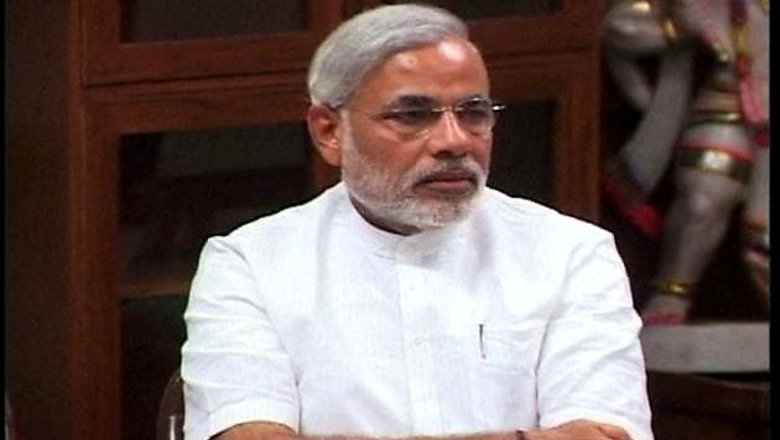
views
The report of amicus curiae Raju Ramchandran with respect to Narendra Modi's culpability in the 2002 Gujarat riots has galvanised those who were disenchanted with the Supreme Court-appointed Special Investigation Team's (SIT's) findings in the case. Modi's supporters, who were relieved at the SIT giving a clean chit to their leader, are also a worried lot.
But these expressions of excitement and anguish do not have much basis at this point of time as the amicus curiae report in itself do not have any legal teeth. It is the discretion of the court whether to admit an amicus brief (typically a shorter version of the report) or whether to act on an amicus report. As of now, the only report admitted by the court is that of the SIT which basically exonerates Modi of any wrong doings.
So that way, the amicus curiae's contention that Modi can be prosecuted for his role in the Gujarat riots under sections 153A, which deals with promoting enmity between different religious groups, and 153B, which deals with making assertions against national interest, does not alter the staus quo in this case.
An amicus curiae (meaning friend of the court in Latin) is typically an experienced advocate who is not a party to a case who assists a court in deciding a matter by providing the bench or the judge his legal opinion in the form of a brief or a detailed treatise on the matter. In this case, the highest court of the land, Supreme Court, has appointed Raju Ramchandran as amicus curiae in this case at the time when it directed the setting up of a SIT to investigate the case.
However, though not binding or advisory, the amicus curiae's report is a jolt to Narendra Modi as the report is in sharp contrast to the SIT report which had effectively let Modi off, saying that there was no material that could justify action under the law.
On IPS officer Sanjeev Bhatt's claim that he was present at a meeting called by Narendra Modi on February 27, 2002, where Modi allegedly asked senior officers to go slow against rioters, SIT had questioned Bhatt's motives. But Raju Ramachandran disagrees and says Bhatt's allegations may have a basis.
Bhatt himself has welcomed the amicus report saying, "I am sure that no amount of diabolical machinations on the part of the SIT or the State of Gujarat will be able to suppress the ghastly crimes that were perpetrated under the aegis of the State in 2002."
Even on the role of two senior police officers – MK Tandon, then joint commissioner of police, Ahmedabad, and PB Gondia, then DCP, Ahmedabad, the report varies from SIT report. The amicus questions their lack of action while the SIT says there is no evidence against them.
Even in the case of Modi's ministers, IK Jadeja and Late Ashok Bhatt, being present in police control room in Ahmedabad a day after riots broke out, Raju Ramachandran has a different take. He says its circumstantial evidence of the Chief Minister directing, requesting or allowing them to be present.
The report of the amicus curiae, appointed by the highest court of the country, carries moral weight, especially when it questions almost every single finding of the SIT. It might be difficult for the court to not take cognisance of these differences.




















Comments
0 comment